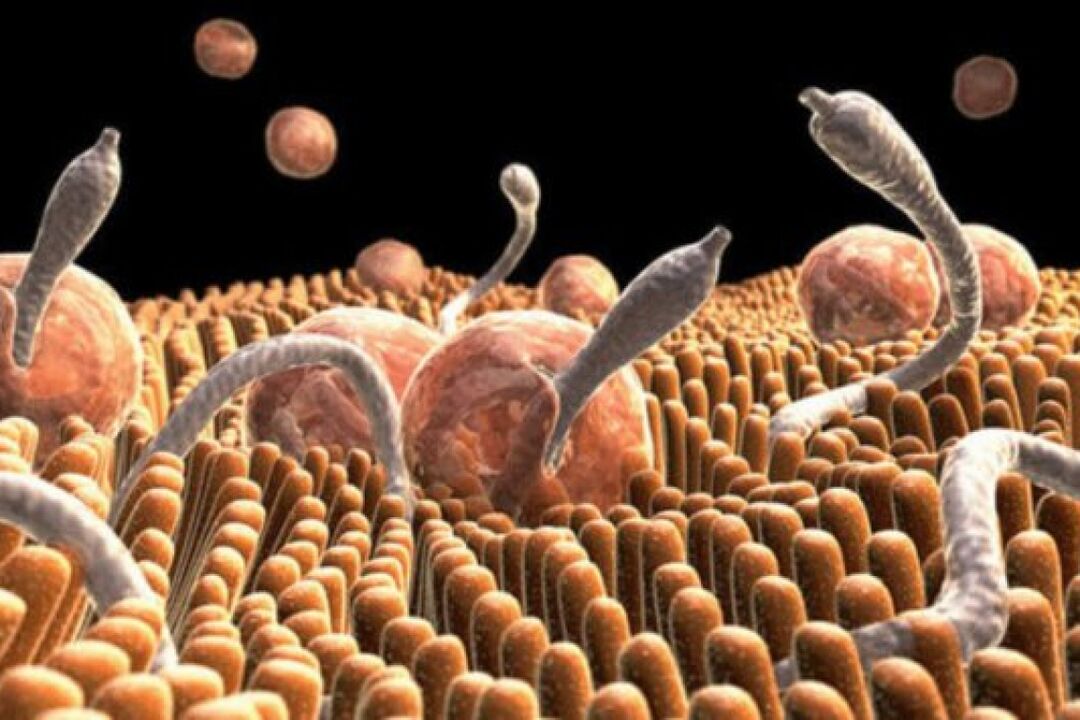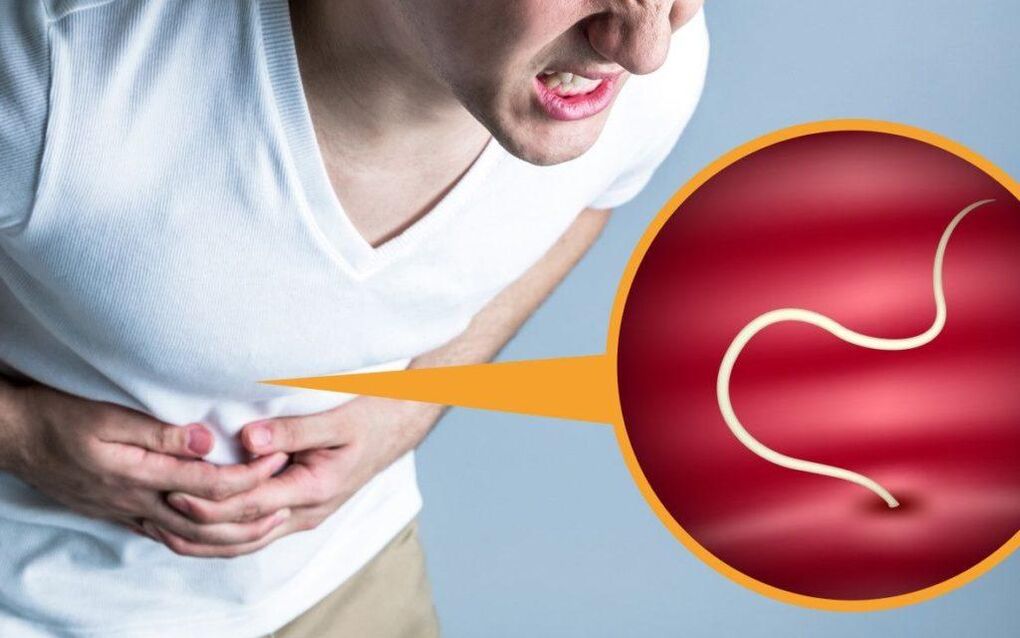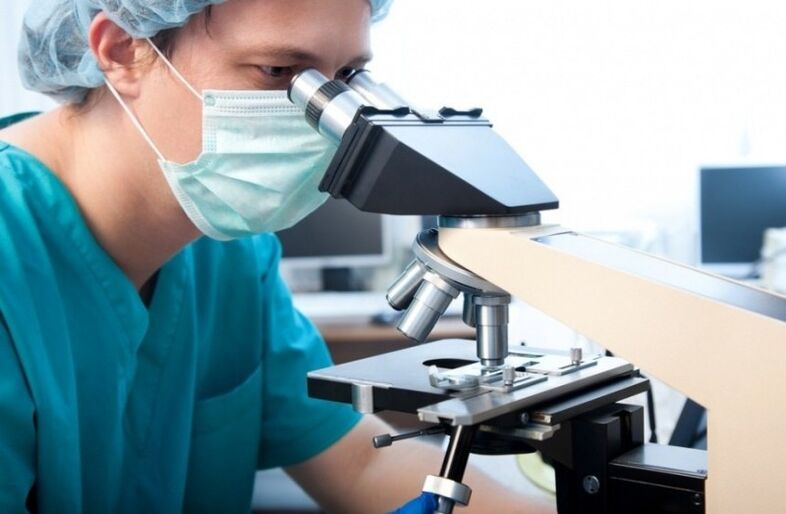
Parasites in the human body originate from the environment and are active there. Toxins formed as a result of the activities of these creatures poison the human body and cause serious damage to health. Symptoms of parasites entering the human body can be a variety of unpleasant symptoms that require urgent treatment. If the treatment of the invasion is started on time, the consequences of the disease will be minimized.
What is a parasite in the human body
Parasites in the human body are invasions that exist at the expense of the host. Parasites live in the human body, continue their vital activity, feed on human food and energy, and often feed on human cells and tissues. Recent studies show that there is an 85% chance of parasites in any organism. Some scientists add 10% more to this figure.

Dr. Ross Andersen said parasitic infestation is the most undiagnosed disease in the world. He admits that this is a very bold statement, but it is based on the analysis of data from the medical history of more than 20, 000 patients and many years of experience of more than 20 years.
It is possible to determine the presence of parasites in the human body by taking a sample of feces for analysis. This is the traditional and most common diagnostic method. However, it is extremely uninformed and unreliable, as the parasite can only be detected if a laboratory assistant sees the larvae under a microscope.
Parasites in the human body can live almost anywhere. There are no obstacles for them. They parasitize not only in the intestines, but also in the liver, joints and muscles, blood, brain and eyes. Science knows more than 100 species of parasites that live in the human body from invisible amygdala to worms several meters long.
However, as a result, the worms do not always lay a large number of eggs, which means that a parasite may not be detected during a standard study. Some experts recommend testing three times, but this does not give a reliable result. It is believed that at least 8 or even 10 stools should be examined to detect parasites.
At the same time, the most common parasites living in the human intestine were found to be helminths. They all have different shapes, like a tree leaf, like a woman's bracelet, and can look like a sharpened pencil on both sides.

But they have one thing in common - they aim to destroy the owner, to get the maximum benefit from his body. In addition, all parasites are very productive and lively.
It is a mistake to believe that helminthic infestation is just a childhood disease. Adults often suffer from them, and most people do not suspect such an unpleasant and dangerous neighborhood.
Types of parasites in the human body
Parasites in the human body. When infected with any parasitic microorganism, a person may be unaware of the problem. Only some symptoms can signal the presence of living things that cause the disease: a general disorder, an increase or decrease in body weight.
Signs of invasion of the body appear only when the microbes reach great values and the general and local immunity is significantly reduced. Numerous worms are characterized by great damage to human health.
Types of parasites in the human body:
- roundworms:size is microscopic. The most popular representatives of this group are Trichinella, ascaris, pinworm, whipworm;
- trematodes:group of flatworms. They parasitize inside and outside the body. These include flukes, types of flukes;
- cestodes:There are tapeworms, tapeworms, echinococci, tapeworms. There is no digestive system;
- head-to-head: these are small worms with a completely elongated body, completely covered with thorns;
- with scrapers:a person is infected by infected fish, birds and mammals. Microorganisms that parasitize under the skin. These include the roundworm. It is also called the guinea pig. The risk of occupation is very high;
- amip: single-celled microscopic helminths. It has an irregular, constantly changing shape. It is located in the blood vessels and causes pathologies of the cardiovascular system and the development of stroke. The causative agent of amoebiosis;
The liver is affected by various types of lamblia, amoebae, schistosomes, roundworms, echinococci, which disrupt many processes in the body. The liver and other organs are vulnerable to an entire army of virulent microorganisms.
Ways of penetration of parasites into the human body
Parasites in the human body. Parasitic diseases, helminthic infestations are caused by pathogens that enter the human body in different ways. Infection often occurs when a helminth (parasite) enters the mouth (contamination of food and water with cysts of soil, eggs and pathogens), through dirty hands.
Insects (flies, cockroaches), rodents and larger animals (cats, dogs) can transmit the pathogens of parasitic infections and protozoal diseases through infected household items.
Parasitic pathogens and their larvae are present in almost all organs and tissues - both in the lumen of the large and small intestine, rectum, bile and urinary tract, bronchopulmonary system, blood, brain and liver tissue, muscle tissue and eyes. . .
In children's groups, helminth eggs are transmitted through toys and dirty hands. Some parasites can enter the host's body through the skin (even the untouchable) and mucous membranes, with less inhalation.
In the process of evolution, it has developed special mechanisms for the spread of many parasites to protect their species (for example, a complex developmental cycle with host change, the formation of cysts and protective membranes).
Parasites have lost some organs (vision, digestive system). But at the same time, the reproductive system of parasites has reached an incredible development (hermaphroditism, a large number of eggs secreted by an individual).
Diagnosis of parasitic diseases
Parasites in the human body. The important thing is to diagnose and detect parasites for timely treatment and elimination from the body. Diagnosis and identification of many types of helminthiasis is based on the detection of parasites, fecal eggs and other methods.

Frequent stool re-examination is required to make a reliable diagnosis of parasitosis. In enterobiasis, a study is performed for the parasite's eggs by breaking the perianal folds.
ELISA (enzyme-linked immunosorbent assay) allows you to identify the pathogen by examining the antibodies in the blood. A general analysis for all parasitoses and helminthic invasions shows an increase in the number of eosinophilic leukocytes in the blood, which indicates allergies, often iron deficiency anemia or other genetic symptoms (macrocytic, B12 deficiency).
Prolonged mass invasion of parasites can lead to electrolyte changes and mineral deficiencies (calcium, phosphorus). Biochemical examination of liver damage, transaminases, bilirubin is often used when helminthiasis is suspected.
Ultrasound, endoscopy of the stomach and duodenum, CT - examination - can be used in the diagnosis of certain parasitic diseases (echinococcosis, giardiasis). In trichinosis, a biopsy of muscle tissue and skin is mandatory (detection of the parasite and confirmation of the diagnosis).
Symptoms of the presence of parasites in the human body
Parasites in the human body are organisms that live at the expense of the host. They live in parallel in our bodies and are nourished by our energy, cells and nutrients. It is no secret that they throw their waste products directly into our bodies and die there.
The symptoms of parasites in the human body are very different. The trick is that they all present themselves in such a way that it is impossible to diagnose immediately. Regardless of a person's worms, the symptoms of any helminthiasis will be very similar.
In addition, the appearance of symptoms that are characteristic of any malnutrition, because parasites are known to absorb the most beneficial nutrients, including vitamins and minerals.
Symptoms of parasites in the human body:
- constant fatigue, decreased performance, irritability, irritability;
- drowsiness or insomnia;
- skin and hair problems;
- cosmetic defects in the form of delamination of nails, cracking of heels, various spots on the skin, early wrinkles on the face;
- abdominal pain, bloating (gas and bloating);
- fecal disorders (more often in the form of diarrhea, but constipation is also possible);
- significant changes in weight in a relatively short time;
- bulimia (prolonged increase in appetite) or, conversely, worsening of appetite;
- hypovitaminosis (vitamin deficiency);
- anemia, low hemoglobin; granulomas, tumors;
- headache, joint pain, muscle pain;
- grinding teeth in sleep, itching in the anus;
- impaired immunity, frequent colds;
- Increased allergic reactions in the form of asthma, atopic dermatitis, urticaria.
Symptoms of liver parasites in humans
Parasites in the liver can last a long time. It is important for a sick person to pay timely attention to some signs and symptoms that indicate the presence of parasites.
Parasites in the liver often cause the following symptoms:
- weight loss, fever, leukocytosis, pain (or discomfort) in the right hypochondrium. Sometimes the pain spreads to the shoulder. This clinical picture is typical for hepatic amebiasis; organic and functional changes in the liver, which generally occur with giardiasis;
- nervousness and irritability. This is one of the most common symptoms of parasitic infection, not only of the liver, but of the whole body. Waste products of parasites have a toxic effect on the human nervous system. According to medical observations, patients become more patient and calm after the removal of parasites;
- sleep disorders. The peak of active liver activity occurs at 2-3 o'clock in the morning. In the presence of parasites, patients can wake up at this time almost every night. Sometimes helminths can come out of the anus, which can disrupt the patient's sleep;
- Other symptoms associated with parasitic liver infection include bad breath and bad taste, constant hunger, acne and pimples, diabetes, headaches and migraines.
Treatment of parasites in the human body
Drug treatment of parasites in the human body
Prescribing and monitoring of drug treatment is carried out only by an infectious disease specialist or parasitologist. In addition to the use of drugs for the successful treatment of parasitic pathologies, alternative medicine is also used.
Well-known anti-helminthic drugs are widely used for the treatment of helminthiasis.
Treatment of parasites in the human body by folk methods
Parasites in the human body. It will not take a day to get rid of parasites in the human body with folk remedies.

If the method is strong, the worm will die on the first day. But there are also eggs that are not laid for the first time.
How to get rid of parasites at home - recipes:
- Purification of sauerkraut brine in the body will be effective: r drink in a cup for 3 hours. per day. before meals. Can cleanse the liver of parasites;
- even flowers can cure a person: fill a glass with lilac flowers and pour vodka to your mouth. Stand 10 days and take 1 tsp. before each meal. Reviews of this popular method are commendable;
- In adults, you can get rid of parasites with fungi: for this purpose, home-made tinctures are used. Agaricus and chanterelle mushrooms are effective against worms. Insist chopped agaricus in a glass of 0, 5 liters of vodka for 14 days. Drink 1 tbsp. l. 3 days / D. before meals. To make cleansing more effective, drink the product with an infusion of calendula, currant and yarrow. The treatment lasts a month;
- It is allowed to use folk remedies for parasitic recipes from plant seeds: cumin and dill seeds are good to extract with flour. The mixture is eaten in 1 teaspoon. and washed with water. To eliminate parasites in this way for a long time (6 months), but without results.
Effects of parasites on the body
Parasites in the human body disrupt the functioning of organs, cause inflammatory processes in them and destroy tissues. During their vital activities, parasites often produce toxins for humans, which gradually lead to poisoning of the body.
Parasites in the gut use nutrients from food to grow and develop. Therefore, the human body begins to experience their deficiency. This is especially dangerous for children, because their growth slows down, physical and mental development is impaired.
Parasites adapt well, can live in the same organism for years, eggs and larvae are highly resistant to the environment.
Parasites can secrete special substances that neutralize enzymes and disrupt the digestive process of food to protect them in the digestive tract. Therefore, in a patient with intestinal parasites, the symptoms often resemble diseases of the digestive system.
Does a person need to get rid of parasites from the body?
When it comes to cleansing the body of parasites, there is no point in doing it just because it is fashionable and popular. If a person has no signs of aggression, but indigestion is observed only occasionally, it is better to switch to a softer diet and adjust your lifestyle.

Nature itself has commanded that the human gut be a "shelter" for bacteria. Without them, a human being simply could not exist. Dangerous microorganisms such as Staphylococcus aureus and candida are needed by such people because they are involved in the food chain and are food for beneficial bacteria.
If a person is healthy, his body works as a well-coordinated system and nothing will interfere with his work. A strong immune system will prevent any parasites from harming the body.
However, against the background of weakening their defenses, with an irrational diet, taking drugs can disrupt the body's internal ecosystem, and parasites can enter and cause harm. In this case, you must get rid of them by all available means. It is necessary to clean not only the liver, but the whole body.




























